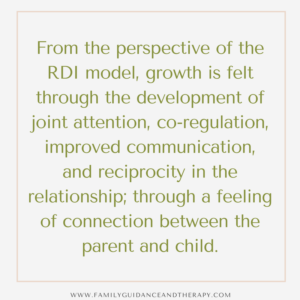As human beings, I believe we all strive for growth. Developmental theorists and researchers suggest that human beings are fundamentally growth-seeking organisms, constructed to continuously strive for greater complexity, integration, and flexibility. In other words, we want to perpetually grow as individuals, and we want to see our children and relationships flourish. By definition, “growth refers to a positive change in size, and/or maturation, often over a period of time. Growth can occur as a stage of maturation or a process toward fullness or fulfillment. It can also perpetuate endlessly” (Wikipedia).
While it is undeniable that we have an innate desire for continuous growth, as both children and adults advance in chronological and developmental maturity, they are faced with increased ambiguity, complexity, and ethically and morally challenging situations. Thus, there are times when additional supports may be necessary to promote and enhance our growth trajectories.
As Relationship Development Intervention (RDI) specialists, our goal is to assist parents with children on the autism spectrum in supporting their children so they can develop the expertise for meeting life’s challenges!
A core component of RDI therapy is a focus on increasing dynamic thinking which is foundational for continuous growth. Dynamic thinking allows us to function in our fast-paced, complex, and ever-changing environment where we are forced to consider past experiences to inform our current options and decisions. In RDI therapy, The Mindful Guide (parent) provides their Apprentice (child) with opportunities to grow and think dynamically through the process of MindGuiding, which is supported through the Guiding Relationship. With the development of the Guiding Relationship, the Mindful Guide provides specific supports or “scaffolding” to influence the Apprentice in a positive and productive direction. This happens during guiding engagements designed between the parent and RDI consultant, as well as natural exchanges focused on experience sharing, social referencing, co-participation, practicing mastery, exploring and experimenting, observing, and providing just right challenges to support the development of the Apprentice’s Dynamic Intelligence. From the perspective of the RDI model, growth is felt through the development of joint attention, co-regulation, improved communication, and reciprocity in the relationship; through a feeling of connection between the parent and child.
If you are interested in learning more about RDI Therapy at the Family Guidance and Therapy Center, please contact us at 619-600-0683 ext. 1. or make an appointment online, here.

